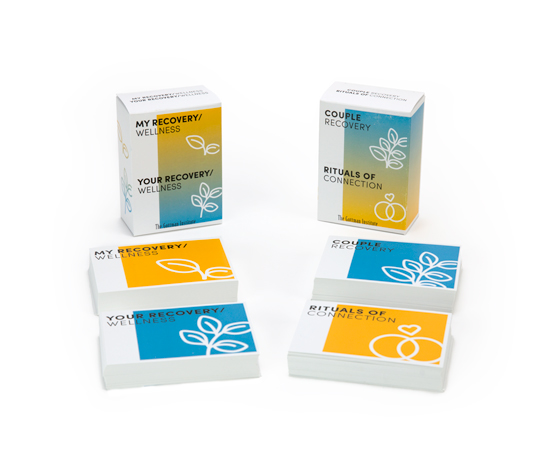Bringing addiction issues into the open is an important step in removing the stigma of addiction and to understanding that addiction is a treatable disorder. Hopefully, this posting will bring information and compassion to those impacted. There is hope!
Remember that the answers below are intended to be psycho-educational. If you would like to speak with a professional trained in the Gottman Method, I encourage you consult the Gottman Referral Network.
I’ve heard that nothing will change until the addicted person chooses to make a change. But as the spouse of an addicted person, where does that leave me? How is the non-addicted spouse supposed to support the addicted spouse on their individual journey without becoming saddled with resentment for the choices their addicted partner continues to make?
This is a very painful place for the partners and family of the addicted person. So often everybody else sees the problem while the addict doesn’t. While it may not seem obvious or even likely, the addict is in pain too, but their pain (and shame) gets covered up by denial, minimization, and often times blame and anger.
Start by learning about addiction and getting support for yourself. Investigate Al-Anon, Codependents Anonymous (CODA), or other support groups for family members affected by addiction. Consider individual therapy with a counselor or addiction treatment professional, such as a certified addiction counselor.
It is important to know that, in addiction, that person’s brain has been hijacked, meaning the person’s judgment and impulse control are now altered and not working properly. This is what defines addiction medically, an inability to stop despite negative consequences due to changes in the brain’s system that regulate the stop and go of decision-making.
Supporting your spouse doesn’t mean accepting the addiction or ignoring the bad consequences that usually follow. Unfortunately, addiction tends to be a progressive disorder that needs treatment and attention. The good news is that addiction is treatable and treatment does work.
Try talking with your partner, but it is very important to stay out of blame. Instead, stick with your concerns and how you personally are being affected. You can state that you have come to understand that substance use problems are actually a medical condition and request that your partner get an evaluation at a local treatment program or with a trained addiction professional.
If that doesn’t lead to action, then you might want to consider exploring couples therapy with a therapist trained in addiction treatment and assessment. Research shows that couples therapy is one of the most effective paths to get addicts into recovery. Alternately, you can look into working with a Family Systemic Intervention specialist. This approach is dramatically different than what most people associate as an intervention. The focus is on the family, not on the addict, with the interventionist meeting with everyone, no surprises or ambushing the addict. They typically provide a workshop-like experience offering support for everyone.
Living with an alcoholic is hard. I divorced my first husband because of it. He had a difficult time keeping a job, mentally and sometimes physically, and he deserted his four children. He died of alcoholism at 48. I married another alcoholic. This one worked and was responsible for his children even if he went through a divorce himself. I admit I did drink with him in the beginning but slowed down after I gained weight. He tried to stop many times, including going through outpatient rehab, and I joined Al-Anon which I went to with my first husband. Why does he return to drinking? Hiding it and then lying, he has lost his license and job. I stayed, but it has become more difficult every time he begins binging. He is openly drinking now responsibly. My question is, what exactly is binge drinking? Why do they lie even when it’s so obvious that I know it is a lie?
Living with an active addiction is hard, so it’s important to understand why your loved one keeps making and breaking promises, and then lies about it. We have 20 years of solid, indisputable research that has identified changes in the brain as a result of addiction. The American Society of Addiction Medicine defines addiction as “…a primary, chronic disease of brain reward, motivation, memory, and related circuitry.” Addiction is considered a chronic disease characterized by craving and loss of control.
For the addict, it is terrifying to see oneself as an alcoholic or addict, that he or she has lost control over their use. So the addict often develops a secret life, a double life, around use. Hiding and lying about using behavior is usually a progressive symptom of addiction that occurs when the addict simply can’t control their use, yet feels horrible and ashamed about it. Telling an alcoholic to control their drinking is like telling a diabetic to control their insulin level through will power. Addiction, like diabetes, hypertension, and heart disease, is a lifestyle disease that requires changes in behavior—in this case, abstinence. Any control your husband is showing now is not likely to last, resulting in the same or worse levels of drinking as the disease progresses.
Partners of alcoholics (and other addictions) are often given the following phrase to remind themselves that they cannot control their partner’s use: “I didn’t cause it, I can’t control it, I can’t cure it.” The best option is for both of you to get help, support, and education. A particularly helpful book on alcoholism is “Beyond the Influence: Understanding and Defeating Alcoholism” by Ketcham and Asbury.
The National Institute of Alcohol Abuse and Alcoholism defines binge drinking as bringing the blood alcohol concentration (BAC) levels to 0.08 g/dl or higher, in which it is a crime to drive in all 50 states. Generally, 5 drinks for men and 4 drinks for women is considered binge drinking. One drink is found in the following alcohol content equivalents: 1.5 oz. of distilled spirits, 12 oz. of beer, and 5 oz. of wine. Moderate drinking is considered up to 2 drinks a day for men with no more than 14 drinks per week, and 1 drink a day for women, no more than 7 drinks a week.
My husband is a porn addict. It’s been a year since he’s watched, he says. Our sex life has gone completely down the tubes in that year. Is this normal? What’s the best way to ask if he’s still “off the porn”, or should I be asking? Does that cause relapse? Is relapse common in this addiction?
Porn addiction is a behavioral addiction, a type of arousal addiction, characterized by compulsive, excessive, and uncontrolled behavior. Dr. Patrick Carnes, a pioneer and leading researcher in sex addiction, estimates that 3-6% of Americans have a sexual addiction of some kind. I remember hearing years ago that porn addiction is like the crack cocaine of sexual addiction, easy accessibility, and limitless, and free. Internet porn is much more insidious than magazines and videos. Research on brain functioning shows that the variety of images and the speed with which porn users click on image after image alters neuropathways and creates a higher set point for arousal that “normal sex,” sex with a partner, can’t compete with. A symptom of sex addiction, even in younger men, often includes erectile dysfunction. Like drugs, the reward part of the brain is affected and over time there is a drop in libido and gradual desensitization requiring more and more new stimulation to achieve interest and libido.
Studies have suggested that escalating porn use increases a brain chemical called Delta Fos-B, a protein found in all addictions. Each time the porn is viewed there is a release of this chemical which builds up and reinforces the compulsion to use more and more. There is evidence that suggests it takes 6-8 weeks of abstinence before this protein begins to decline. Like most addictions, 80% of relapses occur in the first 90 days, and often times in the first 30 days.
Relapses are not the fault of a partner asking questions or being upset. Addicts relapse because they have a disease that has impacted their brain, and what is needed is treatment and recovery of some kind. 12-step programs like Sex Addicts Anonymous (SAA), or Sexaholics Anonymous (SA) are free and available to support recovery from sex addiction. Partners impacted by sex addiction can attend S-Anon, another 12-step program for support and education. Dr. Patrick Carnes has written a number of books to help those struggling with sexual addiction, and their partners. Additionally, a Certified Sex Addiction Therapist (CSAT) has specialized training in treating sex addiction.
People have advised me to mention my father’s alcoholism when a relationship gets serious. I would like to know how to mention this in the beginning lightly, and somehow make the guy understand what living with an alcoholic is like so that he can understand the situation? It is somehow hard to make even a friend understand what it is like, let alone someone I am dating.
I’m assuming you are referring to the impact of your father’s alcoholism on you as an “adult child of an alcoholic.” This is such an important area of recovery to understand, that the impact of active alcoholism on the family can be significant and very often traumatic. The National Association of Children of Alcoholics estimates that there are 26.8 million children of alcoholics (COAs) in the USA. Some 2/3rd of all families are thought to be affected by addiction in some way. As with every recovery, education is key. There are many books available to help people understand about the impact of addiction on the family. Dr. Claudia Black, a pioneer in the COA movement has written extensively and has videos on youtube.com that explain family dynamics in active alcoholism and the impact on family members. Additionally, the COA movement, also known as Adult Children of Alcoholics (ACOA), has gained momentum over the years and additional support can be found in support groups like 12-step programs such as Adult Children of Alcoholics, where there are resources, information booklets, etc.
If the relationship is serious and it is appropriate to move to deeper levels of intimacy and disclosure, explaining to a new partner something like, “Every family has its issues, and as we get to know each other I think it would be useful for you to know something about my family and what I have learned about myself.” Boundaries and being mindful of that timing is key.
My wife is an alcoholic. She has been to treatment, but has since relapsed. Our marriage is suffering. What are our options? Can we see a couples therapist while she is actively addicted?
Unfortunately, relapse is a part of the recovery process for many, not all, addicts and alcoholics. Studies indicate that only about one-third of alcoholics remain abstinent in the first year of recovery. After one year of continuous abstinence over 50% remain abstinent, after 3-5 years of continuous sobriety, remarkably over 85% maintain abstinence. That’s a very hopeful statistic – people with over 5 years of recovery are not likely to drink again. There are now an estimated 23.5 million Americans are now living in long-term recovery!
I have been advocating for couples work in situations exactly like you are describing. I believe that couples work can be helpful all along the continuum of treatment, from active addiction, to early recovery, and ongoing recovery. Unfortunately, current treatment approaches in the recovery field actually discourage couples work, despite the fact that there is no research or studies that support this position. On the contrary, there are studies that support couples work in recovery.
Finding a therapist trained in addiction and couples therapy may not be easy, but I have heard from many therapists that they agree that treating couples is a much-needed part of recovery. I certainly have heard from countless couples the need for help. It may take some looking.
In collaboration with The Gottman Institute, I have created a one-day training for therapists and addiction counselors to help couples develop a couples recovery, so that three recoveries are addressed: each partner’s recovery, and the relationship recovery. We provide a tool kit for counselors to use in their work with recovering couples. Learn more here.
Additionally, I am collaborating with Drs. John & Julie Gottman to bring a two-day workshop for recovering couples, Roadmap for the Journey, to treatment programs as an adjunctive therapy to standard treatment. We will be following up with research on the impact of early intervention with couples in recovery.
Both of these Gottman workshops advocate for couples work, in a movement for a relational approach to recovery that we refer to as the Couple Addiction Recovery Empowerment (CARE).
I wish you all the best in your recovery journeys.








